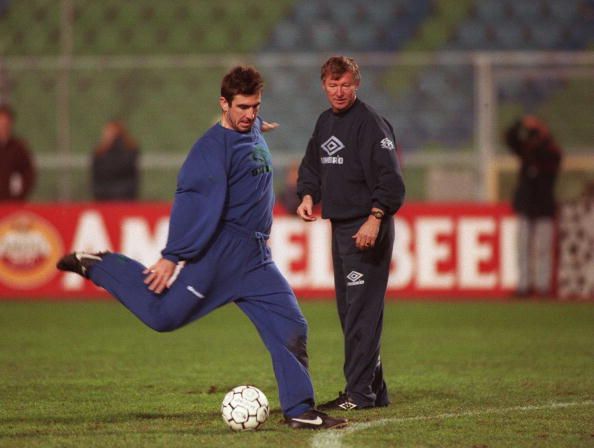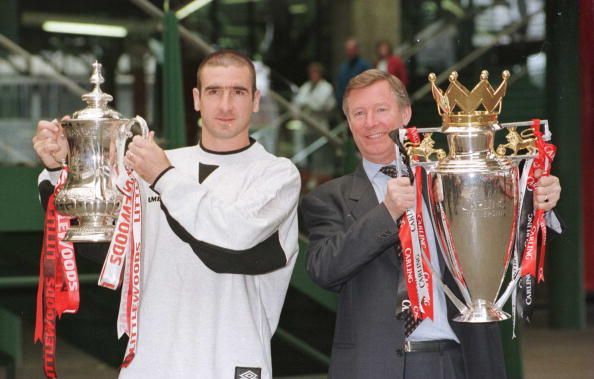This will surprise Manchester United fans, but probably won’t shock them.
Sir Alex Ferguson was “secretly glad” when Eric Cantona retired, according to David Walker, the first journalist to interview the former French striker when he arrived in English football back in 1992.
Cantona hung up his boots in 1997, a few week before his 31st birthday. He was United’s captain and talisman, the spark that ignited the most successful period in the club’s history.
22 years ago todayhttps://t.co/V1eMd9IS8v
— SportsJOE (@SportsJOEdotie) January 25, 2017
Walker claims that he was at a dinner with Ferguson in Dublin, and asked him what was “the luckiest break in his career.”
According to the journalist, the former United manager replied: “The day Eric walked into my office to retire.”
Ferguson is said to have known Cantona was in decline, but because he remained a fan favourite it would have been difficult to drop from the team.
“Fergie had read the script that Eric was not at the peak of his creative powers any longer but was also well aware that he remained the fans’ favourite, the undisputed King of Old Trafford.
“Cantona’s career was littered with evidence that his parting from clubs was always laced with bitter recriminations.
“Ferguson knew that if he dropped his French talisman the following season he would not just be annoying the player, he’d be angering United’s adoring faithful.”
Eric Cantona and Manchester, a match made in heaven https://t.co/ELIJKmvdPp
— SportsJOE (@SportsJOEdotie) May 24, 2016
The French striker, who joined United from Leeds in 1992, was the catalyst for United winning four Premier League titles and two FA Cups in his five years at the club.
However, his final season was less productive and when he retired he claimed he had fallen out of love with the sport.
Walker’s claim is in keeping with Ferguson’s account of Cantona’s retirement.
“As the season came to a close, he continued to have the air of a man for whom football had lost its appeal,” Ferguson wrote in his 1999 autobiography.
“Seeing the dullness in his eyes, and the changing outline of his physique, I had to acknowledge that perhaps he was right to terminate his career before blatant decline became an insult to the fierce pride that burned in him.”





































